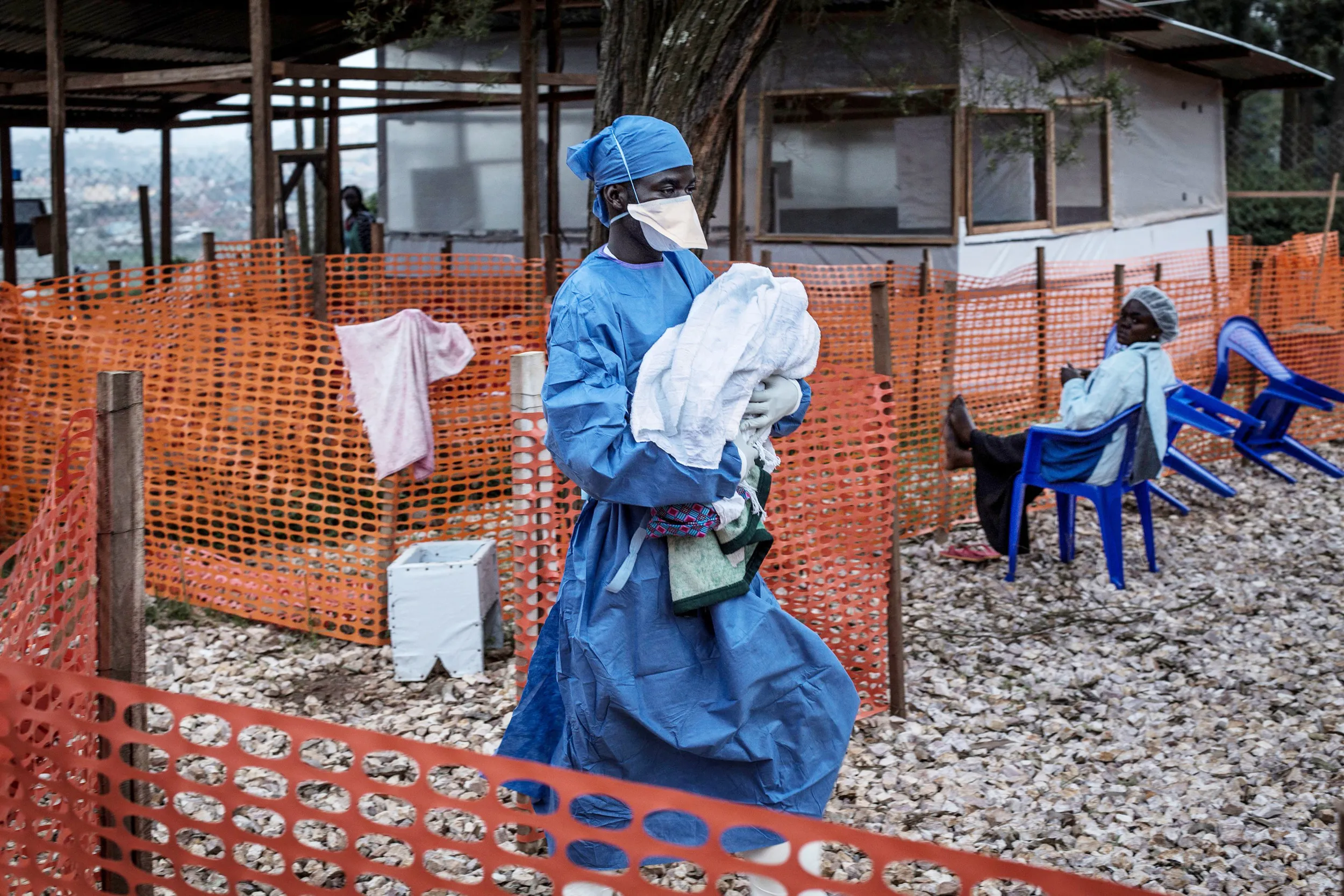But it is as much a crisis of communication as it is a health crisis. People are dying because of misinformation and rumours. Already 1892 people have died and more than 2830 cases have been reported, so it’s shocking that many people don’t believe that the disease exists. Some people believe that Ebola does exists, but they think it’s spread by humanitarian workers. It’s understandable, as they see white-clad medics arrive in their community around the same time as people start to die.
While medical teams race to contain the deadly virus in isolation units across the country, my team is working to spread vital information to communities at greatest risk. It’s my job to co-ordinate this, and it’s a tough job. We are working with community leaders, churches and civil society groups that already trust us, to ensure people receive the right information, from a source they believe in.
We’re also using public radio, leaflets, posters – any way we can get the information to people. We teach people how to prevent the spread of Ebola – regular hand-washing is key. We also encourage people to recognise the early symptoms: the fever, the weakness, severe headache, vomiting, and diarrhoea. It’s essential that people don’t try to administer care themselves. This is a particularly hard message to get through to mothers whose children are sick.
There’s a low chance of survival, but with early detection and the right care, it is possible. I have met people who have survived the disease. But sadly survivors can face a further challenge in terms of stigma. I met a woman who survived Ebola, but people in her village didn’t believe she was fully cured. My team works hard to educate affected communities, to ensure those who survive are accepted and cared for, rather than feared.
One of the greatest challenges facing humanitarian workers in DRC, is responding to the Ebola outbreak in a country already plagued by conflict. The areas affected by the epidemic already had active armed groups. Humanitarian workers involved in the Ebola response have been attacked several times, tragically some have been killed.
CARE already worked in many of the areas affected by the epidemic, which helps in terms of gaining people’s trust. However, we regularly review our security plan to decide whether areas are too high risk for the team. The suffering here is great, and I feel it myself as a Congolese person. Sometimes humanitarian staff work 16 to 20–hour days. Some of my colleagues have lost siblings and cousins.
Humanitarian work is tough, and the majority of people involved in aid work are national staff. This World Humanitarian Day I’d say we need more aid workers for this response, so we can reach more communities, and help prevent the spread of the disease.
We need our information to spread faster than the disease is spreading.

